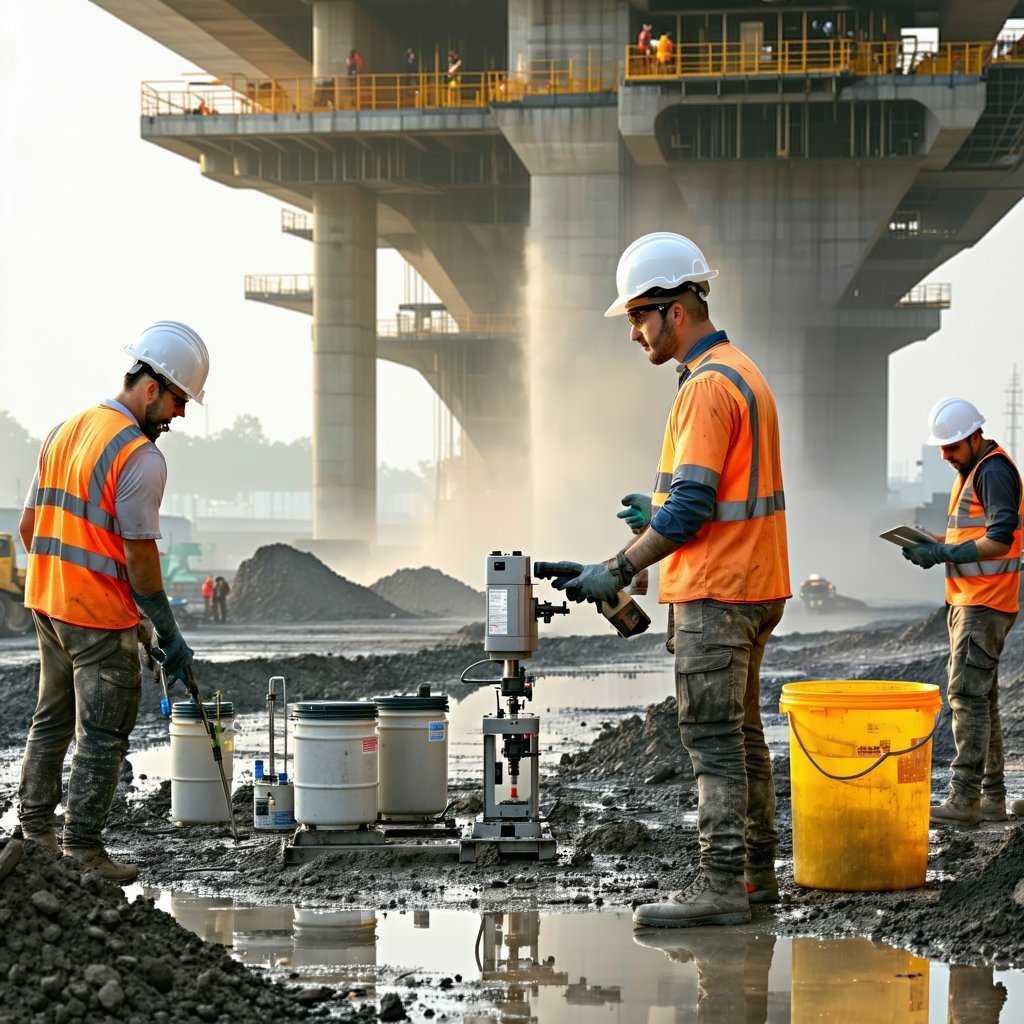Your concrete crew just added water reducer, but now the pour is delayed. Your $15,000 pump rental ticks away. Did the admixture sabotage your schedule?
Standard water reducers (lignosulfonates) slow setting by 1-3 hours. High-range versions (PCE-based) may accelerate set if overdosed. The real shocker? Temperature changes the rules completely – we’ve seen 50% setting time variations in Brazilian vs. Qatari projects.

Having supplied 8 generations of water reducers globally, we’re exposing the hidden factors that make admixtures speed up or delay concrete – factors even veteran crews overlook.
What Does Water Reducer Do to Concrete?
A Pakistani contractor used water reducer “to save cement” – their columns lasted only 7 years. Beyond cost savings, know these critical performance shifts.
Water reducers create three key changes:
- Increase flowability (slump +50-150mm)
- Boost strength (5-25% compression gain)
- Alter curing kinetics (hydration timeline shifts)
Water Reducer Impact Matrix
| Type | Set Time Change | Strength Gain | Cost/km³ |
|---|---|---|---|
| Lignosulfonate | +1.5 hours | +8-12% | $150 |
| PCE Superplasticizer | -0.5 to +2 hrs | +15-25% | $420 |
| SNF-Based | +2.25 hours | +10-18% | $280 |
Our Brazilian clients combine PCE with retarders for precise workability windows. Warning: Never exceed 1.2% dosage without trial mixes – we provide rapid test kits with orders.
How Can I Make My Concrete Set Faster?
When a Dubai hotel project faced $8K/hour penalties for delays, we designed their accelerator cocktail. Here’s the formula they used.
6 proven setting accelerators:
- Calcium chloride (2% max)
- Hot water mixing (+35°C)
- Cement replacement (Type III +8%)
- Nanosilica (3-5% dosage)
- Aluminum sulfate (0.5-1%)
- Steam curing protocol
Acceleration Methods Compared
| Method | Setting Time Reduction | Cost Impact | Code Compliance |
|---|---|---|---|
| CaCl₂ (1%) | 35% faster | +$18/m³ | ASTM D98 |
| Type III Cement | 25% faster | +$42/m³ | EN 197-1 |
| Nano-TiO₂ (2%) | 45% faster | +$155/m³ | Experimental |
| Steam Curing | 65% faster | +$280/day | ACI 517 |
Egyptian bridge engineers achieved 8-hour stripping cycles using our C₃A-rich cement blends. Caution: Chlorides corrode rebar – we supply non-chloride alternatives meeting BS 8500-2.
What Additive Makes Concrete Set Faster?
Contractors keep asking us: “What’s the strongest accelerator?” The answer will surprise you – it’s environment-dependent.
Fastest setting additives per condition:
- Cold climates: Calcium nitrite + triethanolamine
- Hot regions: Lithium carbonate blends
- Marine works: Non-chloride aluminate systems
- Precast: Nano-seeding accelerators
Accelerator Performance Data
| Accelerator | Initial Set | 24h Strength | Chloride Content | Dosage Limit |
|---|---|---|---|---|
| Calcium Nitrate | 45 min | 18 MPa | 0% | 4% |
| Lithium Carbonate | 38 min | 21 MPa | 0% | 1.5% |
| Aluminum Sulfate | 28 min | 15 MPa | 0% | 2% |
| Nano-C-S-H | 25 min | 25 MPa | 0% | 0.8% |
Middle Eastern clients using our LIQSET PRO achieved record 21-min initial set times. Critical note: Accelerators cost up to $12K per ton – we offer exact dosage calculators to avoid waste.
Conclusion
Water reducers often slow concrete setting, but smart admixture combinations can reverse this effect. The true accelerator isn’t a chemical – it’s precise knowledge of your materials, climate, and process limitations.

